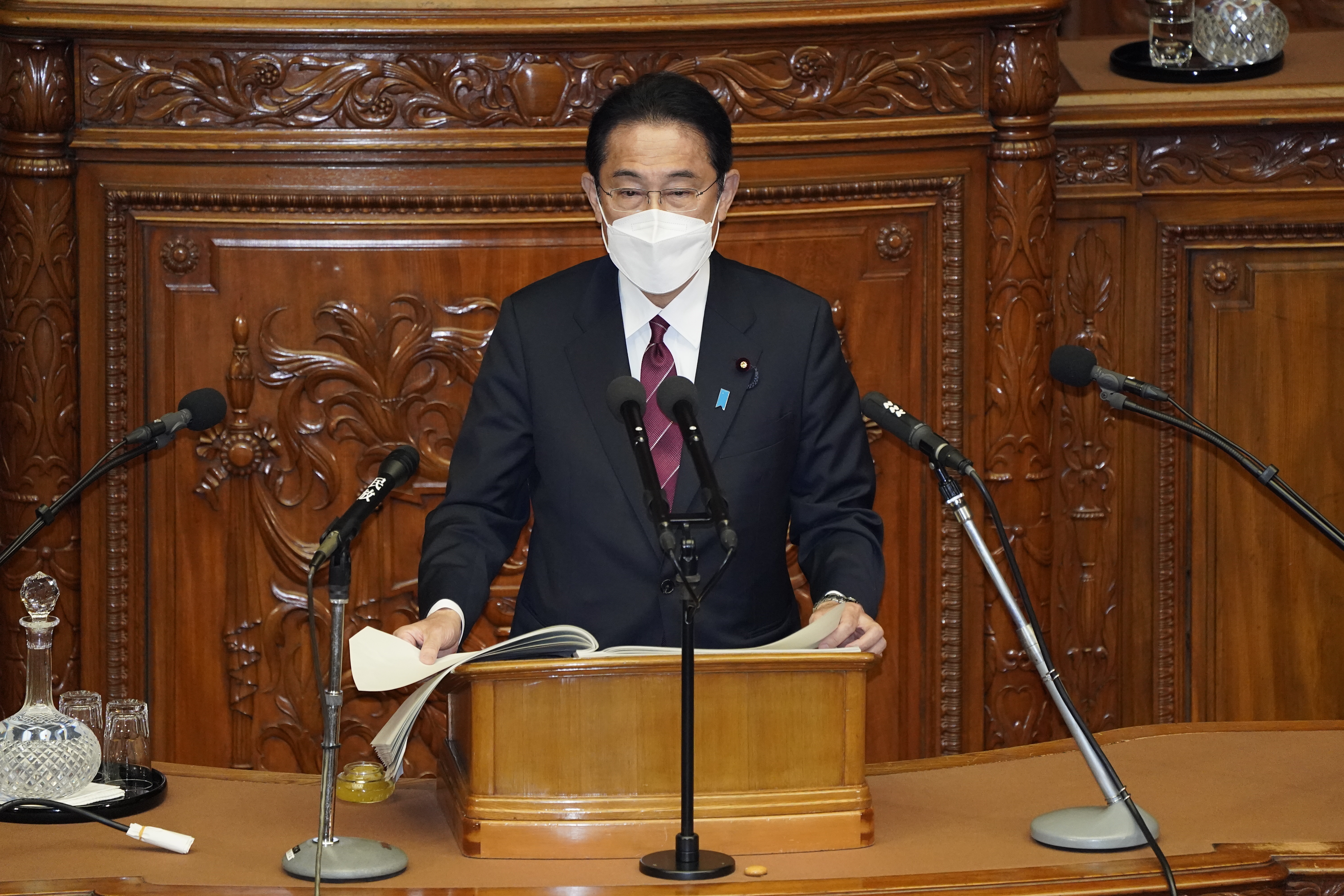In late January, the month-old cabinet of Prime Minister Shinzo Abe announced a set of proposals for revising Japan’s tax code in fiscal 2013, drafted by the ruling party’s Tax System Research Commission. At first glance the plan may strike one as little more than a dessert buffet of tax breaks to support the prime minister’s aggressive pump-priming strategy—Abenomics, as the media have dubbed it. Viewed more closely, the plan reveals some strong points, as well as troubling flaws.
Tax Mix
In addition to a variety of tax breaks, which I review below, the plan incorporates reforms designed to improve the mix of income, asset, and consumption taxes, in keeping with the agreement on the integrated tax and social security reforms reached between the LDP, the New Komeito, and the Democratic Party of Japan.
In the agreement, the three parties approved a major hike in the consumption tax, which will increase the tax burden across the board. The recently announced reforms, therefore, require the wealthiest to contribute a larger share, raising the top income tax rate and putting an end to big tax breaks for investment income.

The income gap in Japan has widened dramatically over the past few decades, and poverty has emerged as a growing social problem. This is a trend with macroeconomic as well as social implications, given recent studies by the International Monetary Fund and others suggesting that countries with greater income equality are more likely to enjoy sustained economic growth. From this perspective, the Abe tax reform plan is a step in the right direction.
The government’s 2013 tax-reform plan thus can be seen as being more than a pump-priming tool for Abenomics; it is also a balanced program that gives due attention to income redistribution. This aspect of the plan can be considered a legacy of former DPJ Prime Minister Yoshihiko Noda, who engineered the three-party tax agreement.
Fairer Taxes on Investment Income
An important element of the government’s reform plan from the standpoint of income redistribution is the proposal to end the preferential 10 percent tax rate on personal income from qualifying capital gains and dividends. The 10 percent rate was adopted in 2003 as a temporary measure and subsequently extended three times. Under the proposed reform plan, the rate will revert to 20 percent in fiscal 2014.
According to a 2008 report by the Ministry of Finance, the tax burden increases as income goes up for households earning up to 100 million yen, but for those in higher income brackets, the burden falls as income rises. A major factor in this anomaly is the system of taxing income from capital gains and dividends separately from other income at a flat rate of 10 percent.
To correct this inequity, some in the former DPJ government insisted that investment earnings should be added to household income and taxed at progressive personal income tax rates (under a “comprehensive income tax”). But such a change would have run counter to international trends in an era of global money flows, when more and more countries are embracing a flat capital-gains tax to prevent capital flight. The Abe cabinet’s plan offers a sensible compromise, maintaining separate taxation while widening the scope of integrating financial income, thus encouraging the use of the some 1,500 trillion yen in Japanese household financial assets.
The proposed reform also seeks to enhance convenience for individual investment through steps to unify taxation on financial transactions. Under the new plan, the separate 20 percent tax will apply to income from a greater range of financial instruments, and taxpayers will have more leeway to deduct losses from profits—as by offsetting gains from stock market investments with losses on the bond market. This enhances the ability of investors to hedge against risk. In the future, the government needs to take this process a step further by incorporating interest from time deposits and other types of financial income.
Another way the plan encourages individual investors is through a new system, modeled on Britain’s individual savings accounts (ISA), that exempts small investments from taxation for up to 10 years. In the future, the system should be upgraded to provide for permanent tax-exempt individual retirement accounts (IRA) with deductible contributions, similar to those available in the United States.
Random Tax Breaks
Abe has vowed to flight deflation with all the tools at his disposal, and this is certainly a laudable goal. But the Christmas list of tax breaks incorporated in the recent reform plan—including expanded tax benefits for home buyers, tax relief for auto purchases, an exemption for cash transfers to cover grandchildren’s schooling costs, and corporate tax breaks tied to payroll growth—raise issues from the standpoint of fairness and enforceability, while their economic impact is uncertain at best. At the very least, the government should make a commitment to conduct follow-up studies to assess whether tax measures like corporate incentives for payroll expansion achieve their stated goals.
An especially problematical item is the introduction of a tax credit combined with a cash refund for home loans. While new home buyers are currently allowed to deduct a percentage of their outstanding housing loans from their income taxes, the new system would permit those with with low incomes to receive cash refunds from the government if their home-loan credits exceed their tax liabilities.
On the face of it, this resembles the earned income tax credit that the DPJ proposed as a means of counteracting the regressive impact of a higher consumption tax. (See “ From Cash Handouts to Refundable Tax Credits .”) But the DPJ plan called for the assignment of taxpayer identification numbers to ensure fair enforcement and prevent abuse of the system, which the LDP proposal ignores. (See “ Taxpayer ID Number System Would Benefit All Japanese Citizens .”) The ruling coalition, in its apparent haste to return the proceeds from the consumption tax increase to taxpayers, is offering home buyers a bewildering array of breaks, including income tax deductions, local inhabitant tax deductions, and tax credits with cash refunds. How can such a system be properly implemented without taxpayer identification numbers?
The proposed gift-tax exemption raises enforcement issues as well. The reform plan would allow the tax-exempt transfer of up to 15 million yen to fund the education of one’s grandchildren. The idea seems like a reasonable one, but to prevent cheating, trust banks will need to keep tabs not only on the amounts transferred but also on how the transferred funds are used. In the absence of taxpayer identification numbers, and given the often-murky definition of education, this raises concerns about fairness and enforceability.
Rethinking Corporate Taxes
Looking beyond fiscal 2013, the government must confront the need to reduce Japan’s effective corporate tax rate. Even after the expiration of special earthquake-reconstruction surtaxes brings the effective tax rate down to 35 percent from the current 40 percent in fiscal 2015, Japan’s corporate taxes will still be among the highest in the industrialized world. Taxes are an important factor informing business location decisions, and Japan’s high rates are among the forces pushing its companies and jobs overseas. This has accelerated industrial “hollowing” and pushed up unemployment, which are taking a toll on communities all over Japan, not just its urban centers. To stem this tide, the government must take action to lower corporate income tax rates.
What accounts for Japan’s high effective tax rate for businesses? Our 25.5 percent national corporate tax, or hojinzei , is more or less on a par with comparable taxes elsewhere; it is the same as China’s corporate income tax and lower than either France’s or Britain’s. The problem lies with two local taxes levied on business, the corporate inhabitant tax and the enterprise tax. Accordingly, this is where reform should focus.
That said, in today’s harsh fiscal environment, any cut in local taxes must be offset in some way. We need to consider local taxes on a much broader scale, addressing the local inhabitants tax, property and other basic taxes, a more efficient division of tasks between central and local government, and reform of the local allocation tax and grant system to transfer greater fiscal authority from the central government to local entities.
Eliminating Outdated Tax Breaks
With respect to personal income taxes, there are two important issues still waiting to be addressed: the tax deduction for dependent spouses and the preferential tax treatment of pension income.
Prime Minister Abe has acknowledged that Japanese women are an underutilized labor resource that must be tapped if Japan is to regain and sustain its economic vitality in the years ahead. That being the case, it is clear we must either reduce or eliminate the deduction for spouses earning little or no income. By using the added tax revenue to provide childcare support through child allowances or expanded daycare, the government would be killing two birds with one stone.
In most of the industrial world, the percentage of women participating in the work force has increased over the past 20 years, even while fertility rates have risen. Japan should launch a concerted campaign at all levels of society to create the conditions for work-force participation by married women. This is a growth strategy worth pursuing.
The tax system also has a role to play in the development of a more efficient social security system. A key step in this direction would be to require high-income retirees to pay taxes on a larger portion of their pension income. Under the current system (which applies to corporate as well as public pensions), there is no ceiling for the special deduction on pension income. This creates intergenerational inequity, as working households are forced to pay higher taxes than retired households with the same income. Curtailing the exemption would not only enhance the fairness of tax system but also help put the social security system on the road to sustainability.
Reform of the pension system has lost momentum since the LDP returned to power, but this is something the government needs to address promptly if it wants to improve the efficiency of the system and contain social security spending. Both of these changes should be high on the fiscal 2014 tax-reform agenda.
Problems in the Decision-Making Process
Clearly the LDP had to juggle a wide array of considerations in drafting its fiscal 2013 tax reform plan. The result, as we have seen, is decidedly mixed, and the deficiencies, I believe, result from a lack of three essential ingredients.
The first is transparency. The tax code is a matter of vital interest to the entire nation, since it has a direct impact on people’s household finances and economic livelihoods. Yet the only sources of information regarding the LDP tax deliberations were newspaper and television reports. When the DPJ was in power, deliberations of the government panel in charge of tax reform were streamed over the Internet, and related materials were made available on the same day. Starting next year, the LDP needs to improve the transparency of its tax deliberation process by posting the meeting minutes and press conferences on the party’s website.
The second vital ingredient missing from the LDP revision was logical coherence. Changes in the tax code directly impact the national burden and its distribution, and considerations of fairness, equity, and balance are of the essence. Someone should be able to explain how the new gift-tax exemption meshes with the increase in the inheritance tax, why a tax credit with a cash refund was included among home-buyer tax breaks, and why corporate tax relief tied to payroll expenses is effective policy. In the future, tax deliberations within the ruling party should begin only after the independent government Tax Commission has studied the issues and offered recommendations based on medium-term forecasts.
The final missing ingredient is accountability. The tax bill the cabinet will submit to the Diet will be the very plan drafted by the LDP Tax Commission. In the days ahead, the Minister of Finance and the Minister of Internal Affairs and Communications will both likely be called on to defend the bill even though neither has played a direct role in drafting it. Surely this process raises issues from the standpoint of accountability.
Under our parliamentary system, the ruling party inevitably plays a key role in policymaking. But the Abe cabinet has essentially ceded the policymaking role to the party when it comes to tax matters. At the very least, there should be some formal mechanism for coordinating opinions between the party’s Tax Commission and the political officials at the Finance and Internal Affairs ministries, which have jurisdiction over the tax system. This would assure the nation that tax policy is a collaborative undertaking of political and government experts.
Let us hope that future tax-policy deliberations will acknowledge the importance of transparency, economic rationality, and political accountability.























